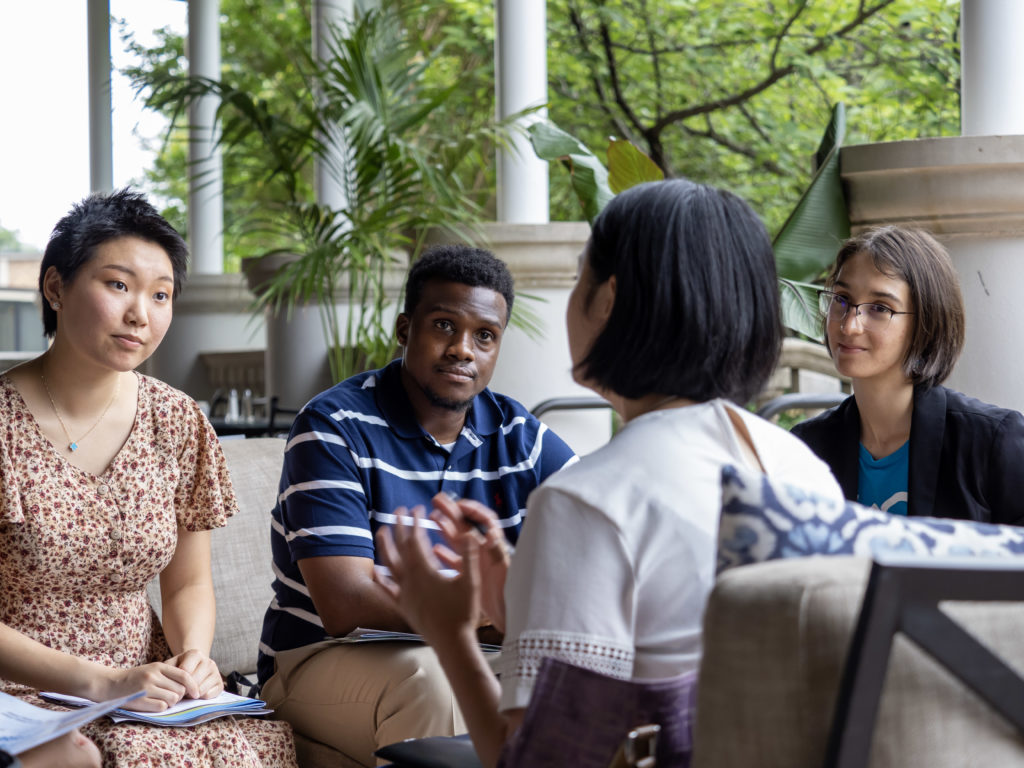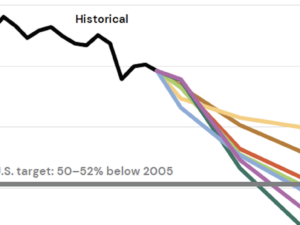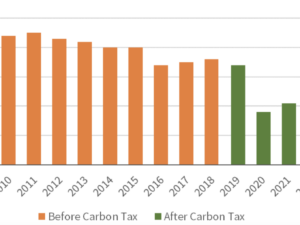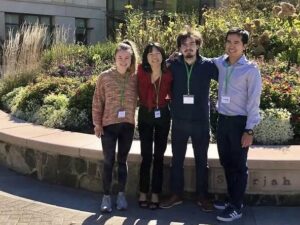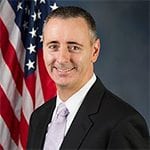Building resilience as climate volunteers
By Katie Zakrzewski
We’re on the edge of our seats around CCL these days, eager to hear about the inclusion of a carbon price in the reconciliation package. It can be hard to wait. It can be challenging to see the back and forth in the media, fearing that the solution we support could be stopped. It can be hard to tackle the slew of thoughts and emotions that arise in this waiting process.
CCL volunteers have always been committed to doing whatever they can. We’re like marathon runners, putting in 120% to take on the climate change challenge. We are, after all, running a climate mitigation marathon. Just like the best athletes, we identify our end goal, and we give it our all to reach it. Some days, we may feel winded, or drained and sore. These are the times when we need to find a way to recover, to rest, and to recharge so that we can come back even stronger.
That’s what resilience is all about— recognizing the pain, the ache, the challenge— and doing whatever it takes to work our way through it, and grow stronger. We have to build resilience so that we can finish the race.
To build that resilience, we need to better understand our emotions and mind frame in the face of positive or negative news.
“We often just ignore our feelings and push forward, and that can lead to burnout,” explains Tamara Staton, CCL’s Education and Resilience Coordinator. Tamara co-founded her local Citizens’ Climate Lobby (CCL) chapter in Portland, Oregon.
“It’s normal to protect ourselves from letdown. It’s simply what the brain does. But we can rewire our brain, and deepen our resilience in a way that can help us individually and collectively.”
You might be thinking, “I don’t have time to rewire my brain right now — we have a carbon price to pass!” But actually, Tamara says, this is exactly the time to pay attention to your own self-care.
“Many people think that practicing self-care is not the same as going forward. They might think that making time for themselves and their wellness takes them off the path toward their goal. But in reality, self-care is an important part of the process,” she says. “When you grow your awareness about your own needs and feelings, you get to your end goal faster and more efficiently. You’ve given your bicycle the tune-up that it needs to finish the race.”
And this race — the race to passing a carbon price this year — is one we definitely want to finish. So, let’s work on that tune-up.
Resilience in action
Imagine that you’re scrolling through social media one morning, and you see posts about Sen. Joe Manchin’s latest comments about his stance on a certain climate policy. This could send you on a rollercoaster of legitimate feelings: worry, confusion, frustration, curiosity, or determination. You may not be sure how to work through those feelings and keep advocating for the policies you want.
Now, imagine that you’re reading the news over the weekend, and you see an encouraging story that includes information about climate policies advancing in Congress. Positive news like that might prompt you to feel “good” stress, such as pressure to continue successfully performing and organizing the next steps as a climate advocate.
Finally, imagine that one day you hear confirmation that Congress is definitely going to put a price on carbon, and the policy is going to take a huge chunk out of America’s emissions. But perhaps the starting price is not exactly $15, or the amount of revenue going to Americans as dividends is not 100%, which we have advocated for over the years. A situation like that could elicit a swirl of mixed emotions: pride, disappointment, satisfaction, relief, sadness, and so on.
Every one of these scenarios is one that requires resilience. To work on building that resilience, it’s important to take the time to notice, give a name to, and acknowledge your feelings. You can practice this in a live workshop hosted by CCL’s Resilience Building Action Team. This Zoom workshop focuses on listening and presence, and consists of time together in one main room and breakout rooms to allow space for volunteers to voice their emotions, concerns, thoughts and worries.
And when it comes to building resilience, CCL’s support doesn’t stop there.
CCL Resilience Hub
Tamara was instrumental in creating CCL’s Resilience Hub, an online resource on CCL Community designed to help volunteers bounce forward from the challenges of life. Tamara points out the support opportunities in the Resilience Hub are not only for stress caused by the reconciliation process but also for emotions that come up as a result of lobbying and other climate advocacy work throughout the year. The Resilience Hub is full of materials and resources to equip CCLers with resilience-building tools for both individual and group settings. Jump right to the hub with this short URL: cclusa.org/resilience.
“For people who like to participate in live workshops alongside others in the community, we have multiple opportunities for that, like the Active Hope Workshops. For those who prefer to build resilience at their own pace, we have online trainings designed to reduce stress and grow your resilient leadership,” Tamara says. The Resilience Hub also has a section called Support Material, with resources that are both internal and external to CCL. One such resource is called, “Resources for working with climate emotions,” and another option is “Transformational Resilience.”
The Resilience Hub is also equipped with support materials for learning personal resilience, as well as short video practices for managing stress and overwhelming feelings.
The waiting game may continue through the fall as Congress finalizes the budget reconciliation package, and portions of the outcome may be counter to our hopes. This is part of life — navigating change and expectations. But when we take the time and energy to care for ourselves and one another, we are better equipped for the journey ahead.

